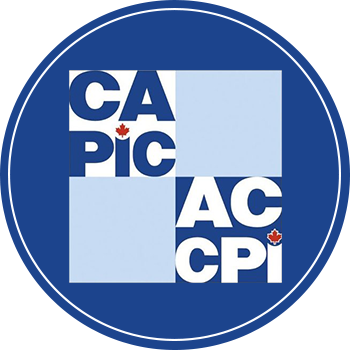
About Temporary Foreign Worker Programs
There are some immigration programs that are just meant for the people looking for a temporary stay in Canada while they work. These programs are there to allow foreign workers to gain the work experience that is required for their application for the Permanent Residency and later apply for the Citizenship of Canada too. In order to help you achieve your goals, Doorstep Immigration will assist you throughout the process.
Work Permit
At times when qualified Canadian citizens and Permanent Residents are not available, this program allows Canadian employers to hire foreign nationals. Every year, thousands of people from all over the world apply under the program and join the Canadian workforce. The Work Permit is an official document that is required to work legally in Canada by foreign workers. There are two types of work permits:
- Open Work Permit: An open work permit allows someone to work for any employer in Canada (Labour Market Impact Assessment (LMIA) – NOT required), except for an employer:
- who is listed as ineligible on the list of employers who have failed to comply with the conditions or
- who regularly offers striptease, erotic dance, escort services or erotic massages
- Employer Specific Work Permit (Closed Work Permit): An employer-specific work permit allows a foreign national to work according to the conditions on their work permit, which include:
- the name of the employer they can work for
- how long they can work
- the location where they can work (if applicable)
Work Permit Application Process
The applicants need to have a valid offer letter from a Canadian employer, with or without the Labor Market Impact Assessment (LMIA), in order to apply for a work permit. The applicant has to apply for an LMIA from Employment and Social Development, Canada (ESDC) and after they have been issued the LMIA, they can apply for the work permit. The Work Permit has some requirements which the applicant needs to fulfill. They are as under:
- Prove to an officer that they will leave Canada when their work permit expires.
- Show that they have enough money to take care of themselves and their family members during their stay in Canada and to return home.
- Obey the law and have no record of criminal activity, police certificates might be requested.
- Not be a danger to Canada’s security.
- Be in good health and have a medical exam, if needed.
- Not plan to work for an employer listed with the status “ineligible” on the list of employers who failed to comply with the conditions.
- Not plan to work for an employer who, on a regular basis, offers striptease, erotic dance, escort services, or erotic massages.
- Give the officer any other support documents as requested by them.
The Work Permit comes with an expiry date and once the permit expires, the applicant has to either leave Canada or apply for an extension.
Working Without A Permit
There are certain circumstances in which foreign nationals can work in Canada without a work permit. These are as under:
- Business Visitors who do not intend to enter the Canadian labor market such as after-sales service providers, the board of director meetings, employees of short-term temporary residents, employees of foreign companies.
- Foreign representatives and their family members who are accredited by the Department of Foreign Affairs and International Trade (DFAIT). Family members of foreign representatives must receive a ‘no objection letter’ by the Protocol Department of DFAIT in order to work without a work permit.
- If there is a labor shortage for the occupation in the area where the job is located.
- Military personnel and their family members who are visitors as per the Visiting Forces Act. Military personnel is also exempted from Temporary resident visa or eTA and related documents. But their family members require TRV or eTA and other documents but are exempted from work permit requirements.
- Foreign Government Officers on international exchange work for a department or agency in either the federal or provincial government(s).
- American Cross-Border Maritime Law Enforcement Officers who work on both sides of the Canada-US border.
- In-Flight Security Officers are designated by foreign governments to enforce safety on foreign aircraft but require TRV or eTA.
- On-Campus Employment/ Off-Campus Employment if authorized by study permit for an international student.
- Performing artists who are not in an employment relationship with Canadian business and part of foreign production and meet some additional requirements.
- Athletes and Team members of a foreign-based team or Canadian amateur team.
- News Reporters, Media Crews who are employees of a foreign news company for the purpose of reporting on events in Canada.
- Public Speakers who are making a speech or delivering a paper at dinner, graduation, convention, or similar function, or as a commercial speaker or seminar leader delivering a seminar that lasts no longer than five days.
- Convention Organizers who are executive or members of the administrative staff of organizing committee.
- Clergy work
- Judges, Referees, and Similar Officials sat an international amateur sports competition, an international cultural or artistic event or competition, or an animal or agricultural competition.
- Examiners and Evaluators of research proposals or university projects, programs, or theses.
- Expert Witnesses and Investigators before a federal or provincial regulatory body, a tribunal or a court of law.
- Health Care Students for the primary purpose of acquiring training, if they have written approval from the body that regulates that field.
- Civil Aviation Inspectors of a national aeronautical authority conducting inspections of the flight operation procedures or cabin safety of a commercial air carrier operating international flights.
- Aviation or Accident Investigators participating in an aviation accident or incident investigation conducted under the Canadian Transportation Accident Investigation and Safety Board Act.
- A crew member of a foreign-owned means of transportation that is not registered in Canada and is engaged primarily in international transportation.
- Emergency Service providers need to work for the protection or preservation of life or property.
- People on implied status.
The people working without a work visa will require an eTA or a Temporary Resident Visa to enter Canada on a temporary basis.



